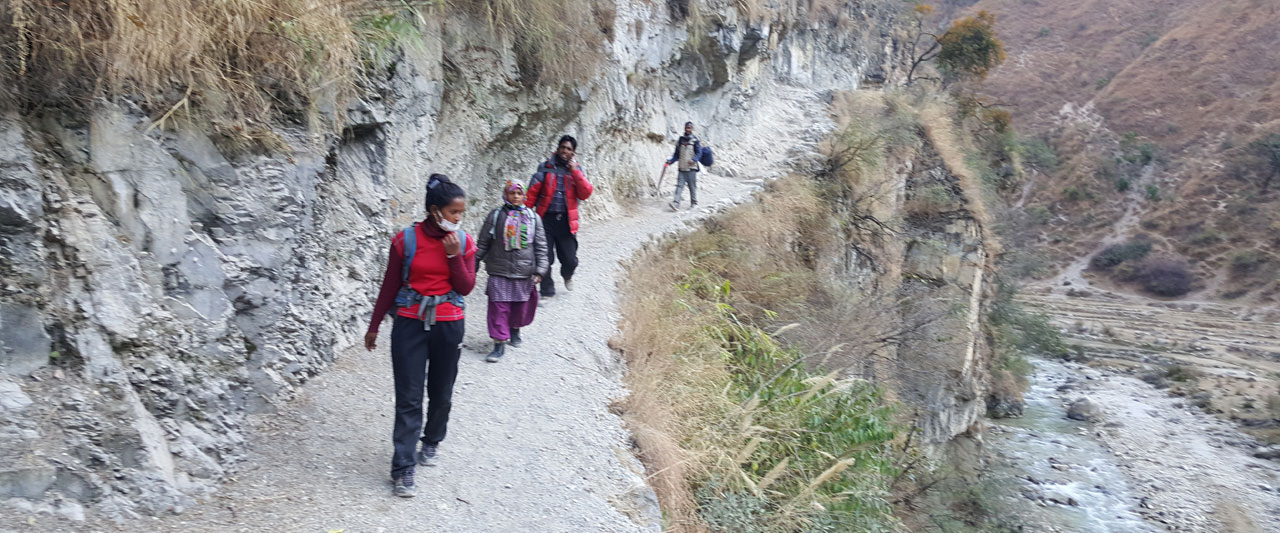Safe, legal abortion is available in Nepal, but out of reach for many women in remote areas. We’re working to change that.
A remarkable collaborative effort involving community members, government health officials, partner organizations and Ipas Nepal has brought safe abortion services to one of the most rugged and remote areas of Nepal, the Mugu District.
Known to travelers around the world for the beauty of its Rara Lake, Mugu District is about 900 km (roughly 560 miles) from Nepal’s capital city, Kathmandu. Getting there is difficult, and, once there, road transportation is not reliable because of the mountainous terrain. Yaks and mules are commonly used to transport essential goods for most who live there.
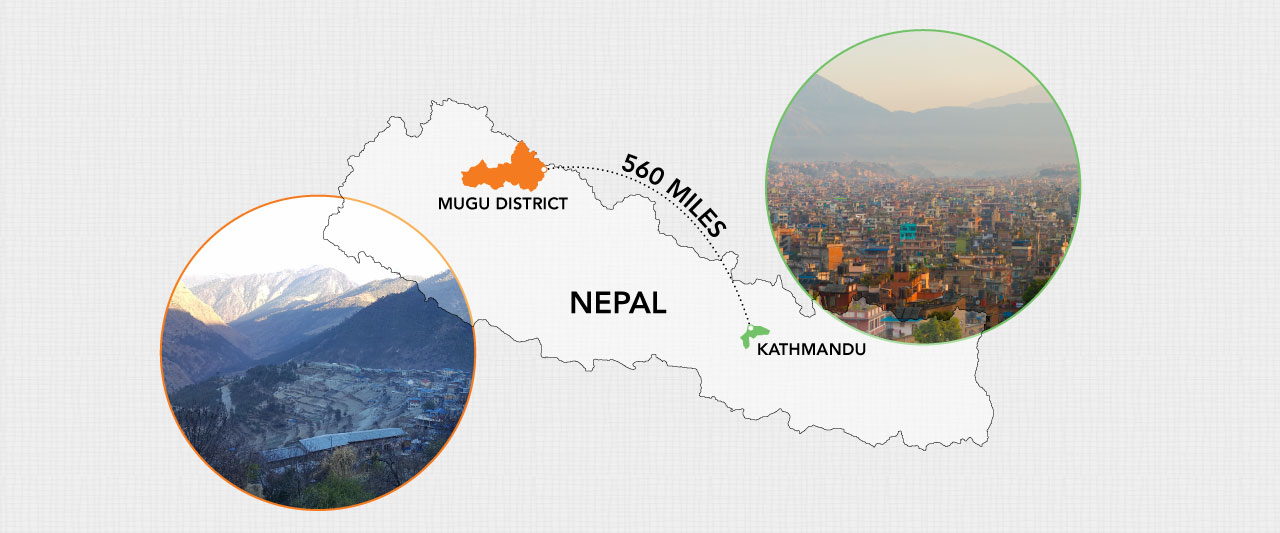
There are health facilities in Mugu District, but many women and adolescents are not getting reproductive health services because of the remoteness of the area, the lack of skilled health workers and the general lack of infrastructure,” says Parash P. Phuyal, a senior advisor with Ipas Nepal. “Women from relatively well-to-do families could travel to urban areas for abortion care, but other women were said to have practiced unsafe methods to terminate their pregnancies, such as using medicinal herbs and inhumane traditional practices.”
Ipas Nepal, in coordination with the central and local government, began working in August 2017 to expand safe abortion services to Mugu District. As part of the first phase of implementation, Ipas Nepal conducted orientation meetings, community assessments and other planning activities. Ipas Nepal program associate Tej Bahadur Bista then traveled from Kathmandu to Mugu District—a journey of two days by plane—to initiate program efforts. Initially, the District Health Office team selected five possible health facilities, based on government criteria, local need and the geography of the district.
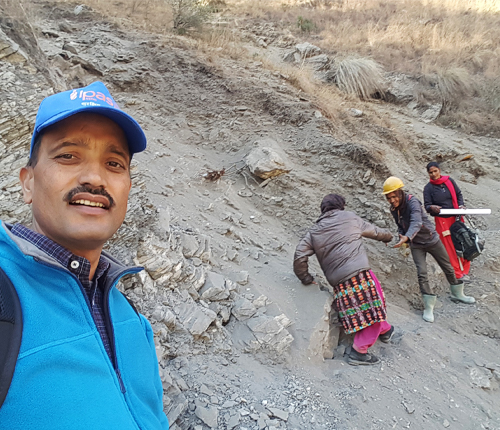
Steep terrain, river waters and icy snow challenged Ipas’s Tej Bista and government health workers.
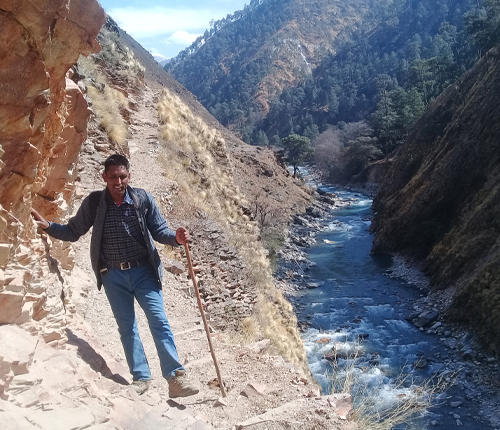
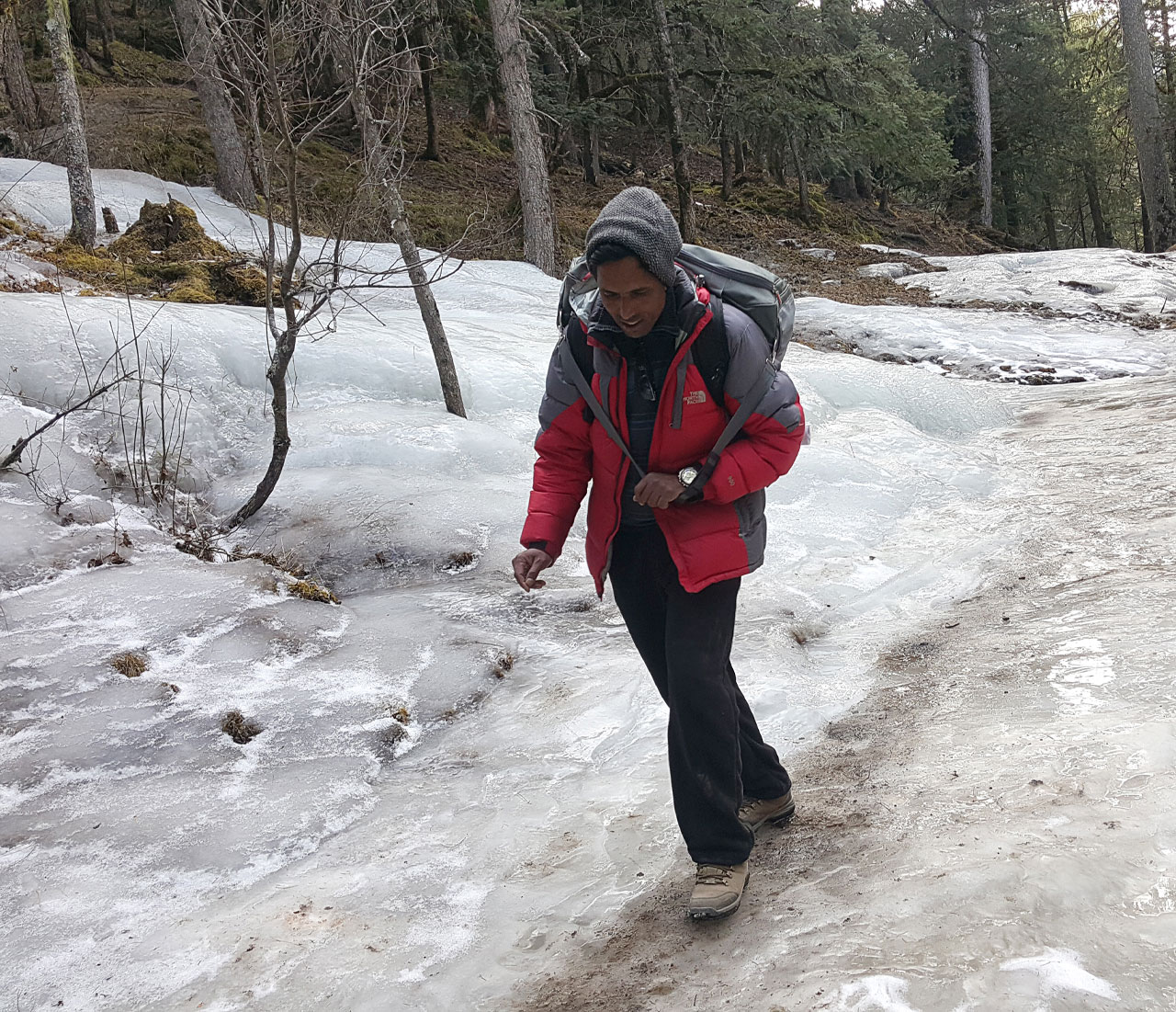
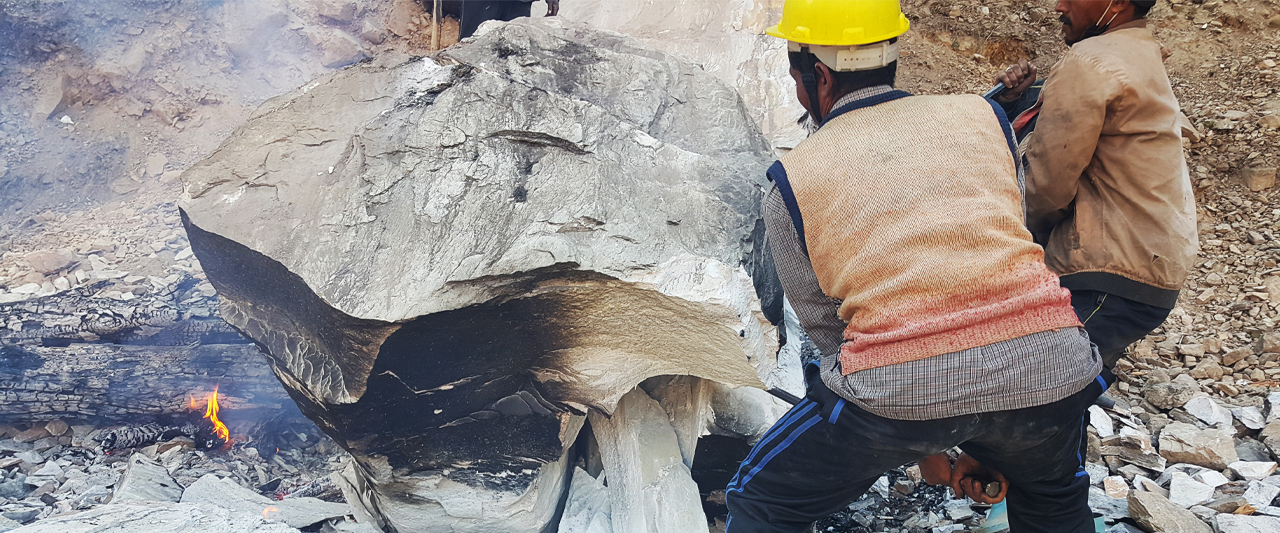
Steep terrain, river waters and icy snow challenged Ipas staff and government health workers as they made the trek to Jima village to assess a possible clinic site—but they got a helping hand from road workers (in yellow caps).
Bista and a public health nurse, Saroja Ghimire, then set out to visit one possible service site in Jima village. Because of the difficult terrain, they had to travel by foot. After two days of walking, they arrived in the village, but were unable to find the health post. Consulting with local villagers, they learned that it was still another three-hour walk away, at the top of a rocky hill. When they finally reached the health post, they found a structure only, with a few pieces of broken furniture, and the windows and doors left open. No health services had been available there for years.
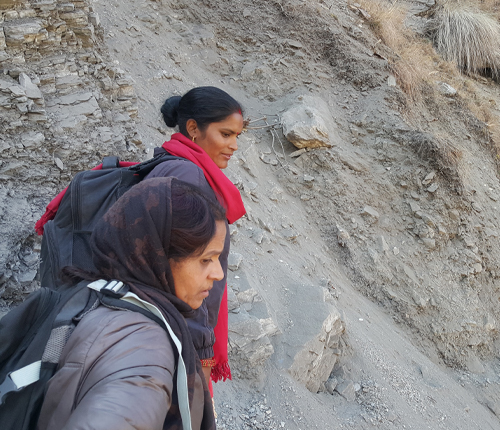
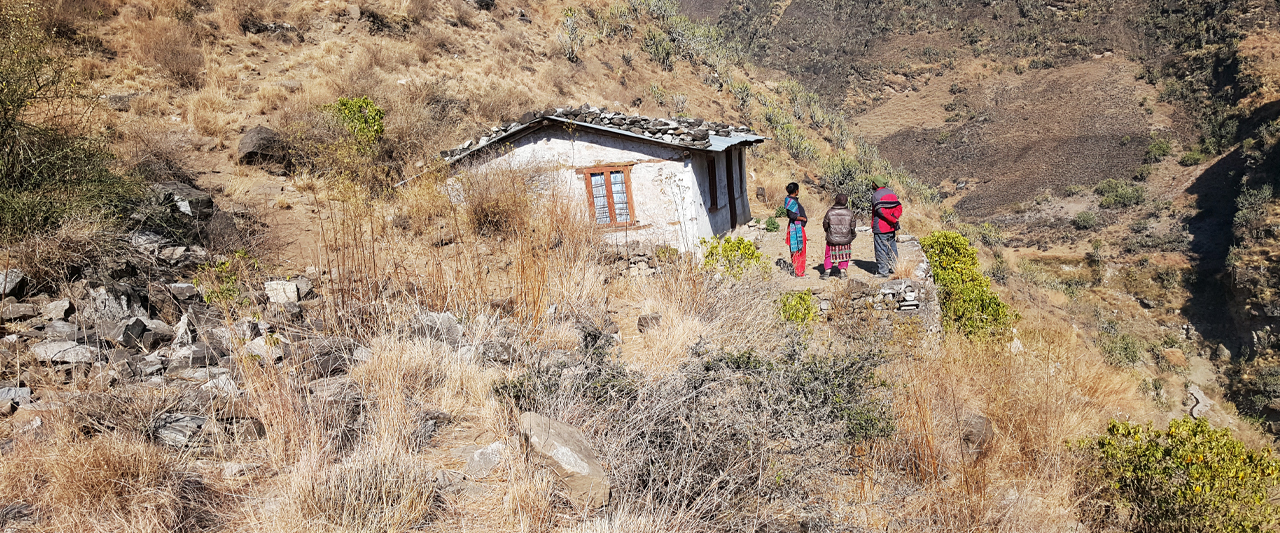
It was unfathomable for me to see a government health post in such condition, let alone to expect any woman to come to this site through such difficult terrain for abortion services,” recalls Bista.
Upon their return to Jima village, the team by chance happened upon a provincial representative for Mugu who was visiting his constituents in the district. The team shared their findings with him, in the presence of village locals and other community members. Together, the Ipas team and community members then explored other possible sites, including an abandoned, dilapidated school building which was now being used to house mules.
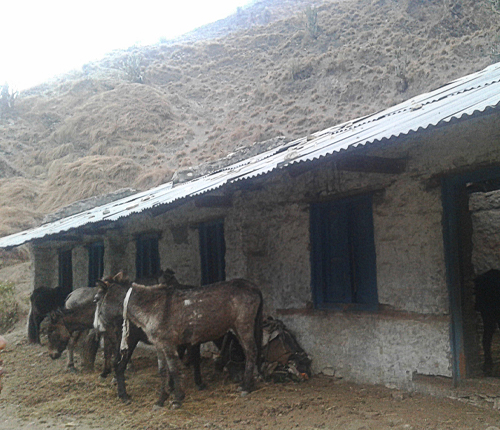
An old school being used to house mules was chosen as the new service site.
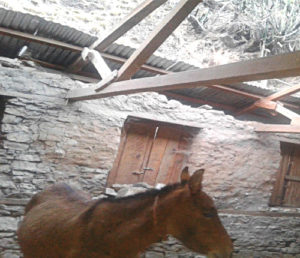
An old school being used to house mules was chosen as the new service site.
Eventually, the old school building was selected to be a new health facility. In the weeks that followed, Ipas Nepal District Coordinator Lok Bahadur Bishwokarma worked with the community to transform the old school building into a functioning health center. “Members of the community came and helped rehabilitate the building,” says Bishwokarma, “helping with repairs to the roof, floor and walls.”
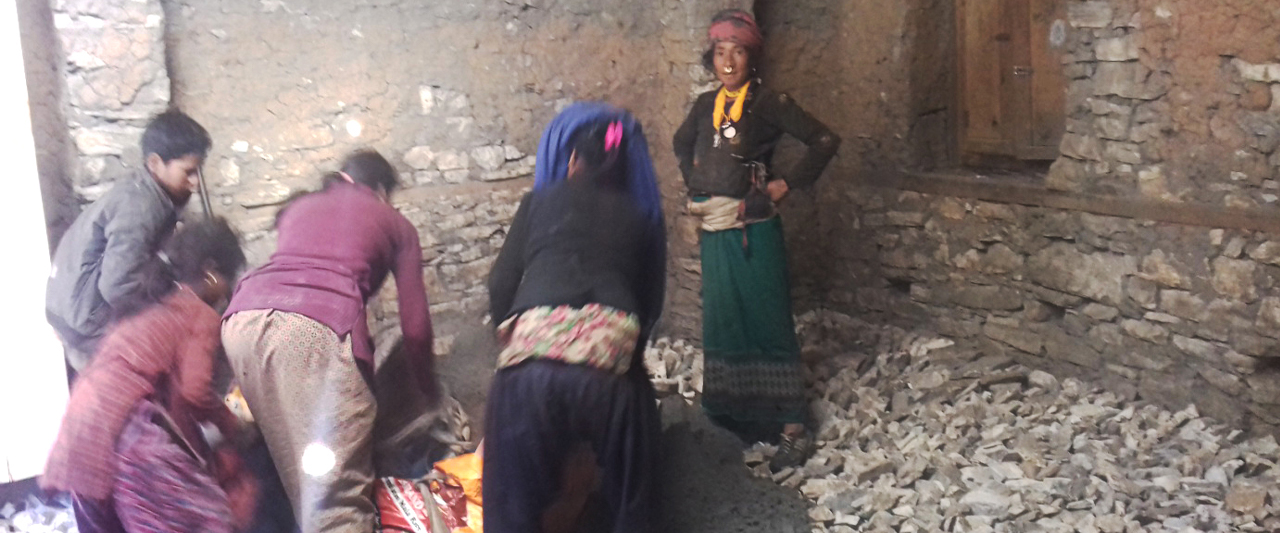
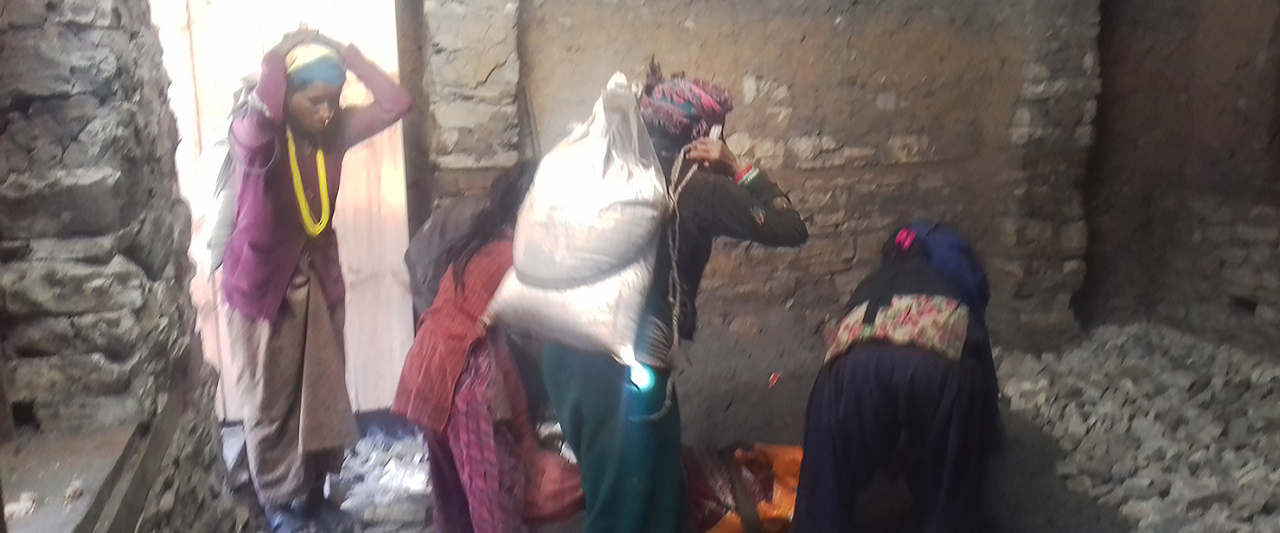
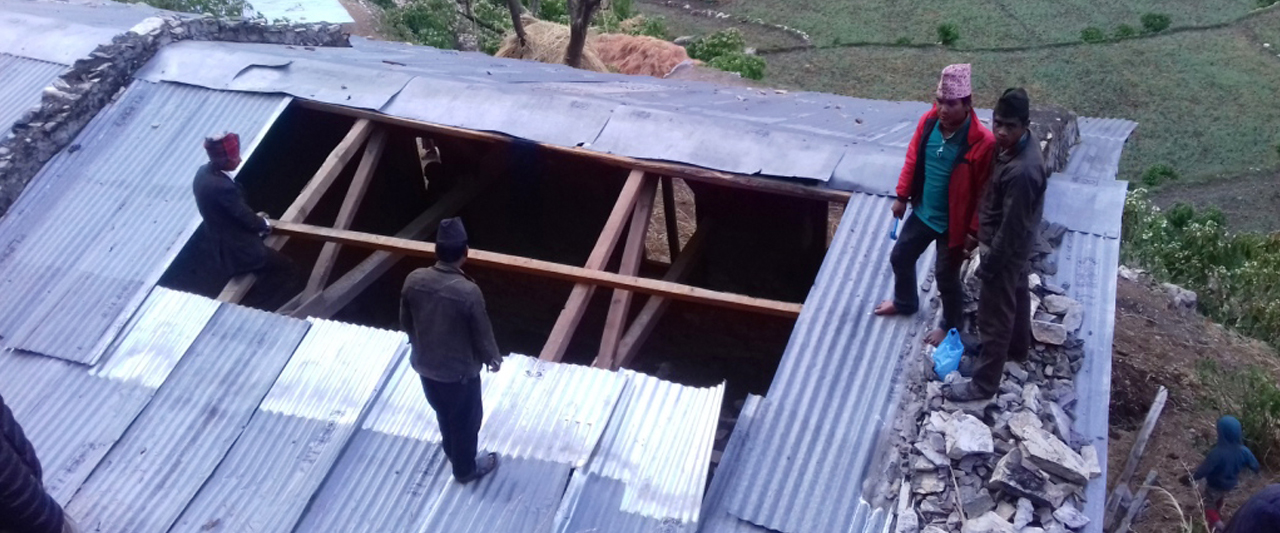
Community members helped with repairs to turn the old school building into a functioning health center.
With the assistance of Biswokarma, who is a resident of Mugu and knew many of the key stakeholders, Ipas Nepal staff then worked to get safe abortion service delivery established on site. They trained providers in medical abortion (abortion with pills), provided post-training clinical support for the providers, and assisted with other necessary site upgrades. In addition, female community health volunteers met with community members to raise awareness about safe abortion services and their availability at the new site.
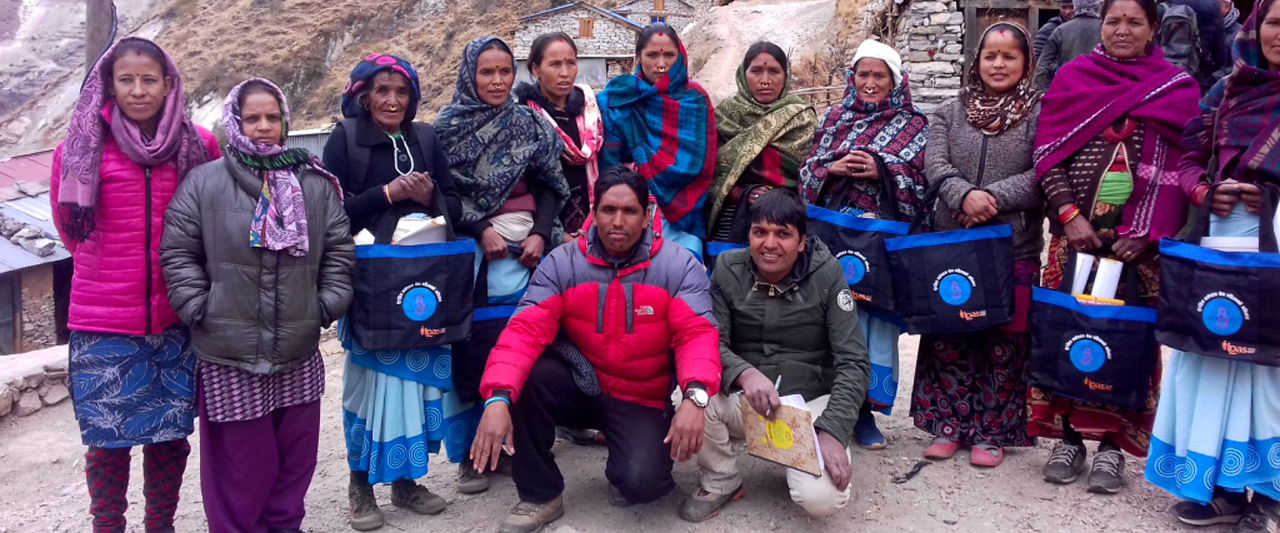
Female Community Health Volunteers, shown here with Ipas Nepal staff and a public health nurse, raised awareness about safe abortion services available at the new health center.
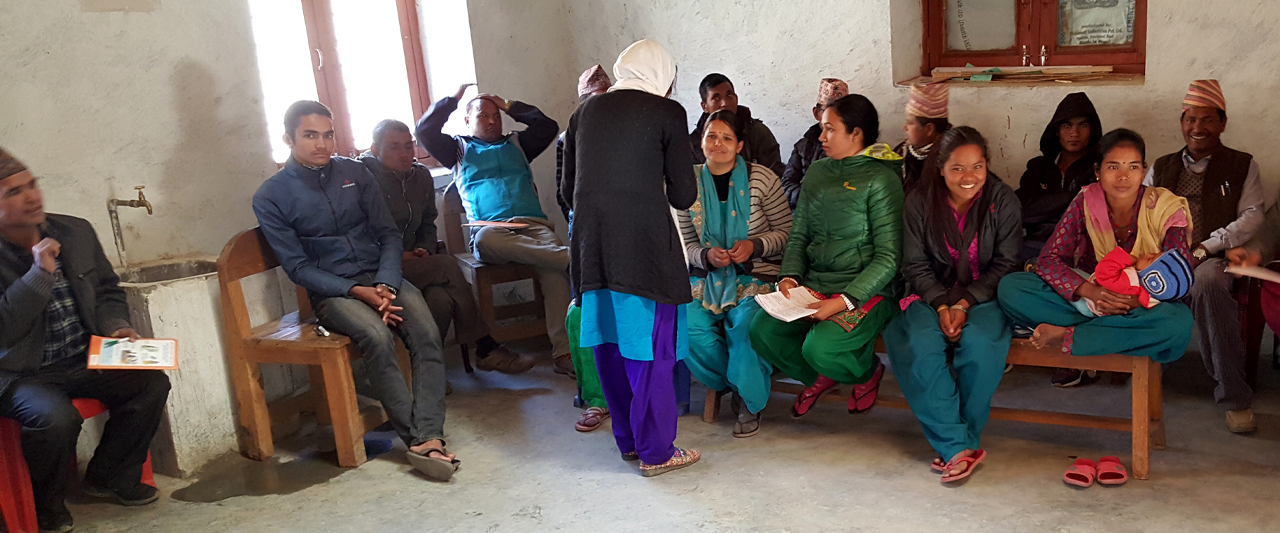
Community members visit the new health center and receive an orientation on safe abortion services.
In conjunction with the work in Jima village, Ipas Nepal also helped to restore abortion services at Mugu’s district hospital. Services had once been available there, but were interrupted when the provider was transferred to another health facility. Ipas staff helped to train new providers, and abortion services, as well as postabortion care, are once again available at the hospital. “In a span of just three months’ time, 80 women received safe abortion services there,” says Phuyal, “far exceeding our expectations on the use of services provided.”
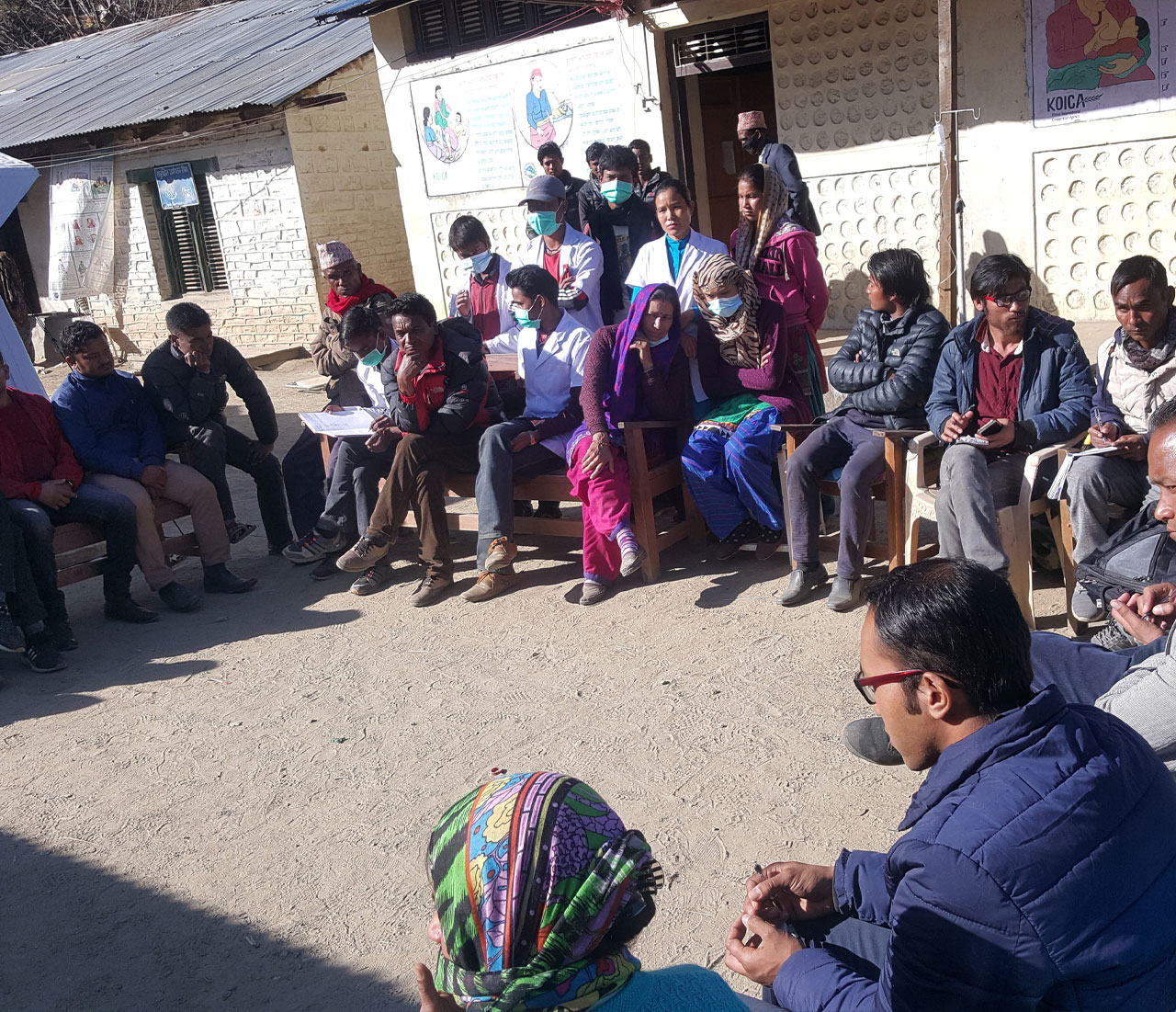
Stakeholders gather for a meeting on strengthening safe abortion services at Mugu district hospital.
Reflecting on Ipas Nepal’s work in Mugu, Dr. Shibesh Regmi, who is Ipas Nepal country director, says:
“We couldn’t ignore the fact that many women were using unsafe methods of abortion and putting their lives at risk. We are proud that we reached out to the people of this remote community who were deprived of safe abortion and contraceptive services for years and that those services are now available.”
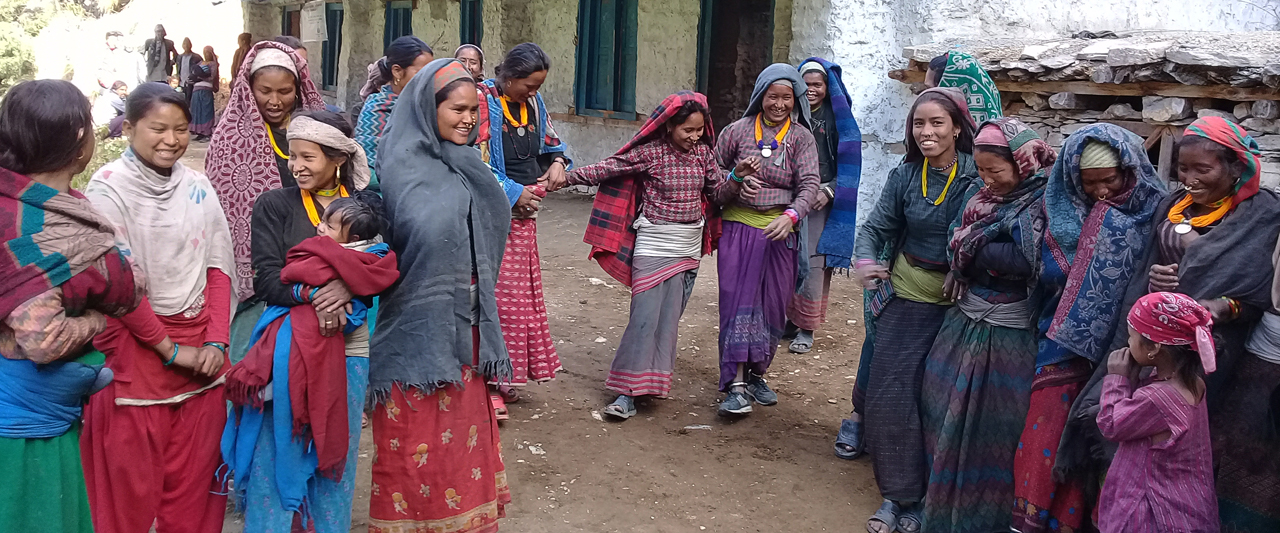
abortion in nepal
- Maternal deaths have sharply declined since legalization of abortion in 2002
- A high percentage of abortions (58%), however, still are provided by untrained or unapproved providers
- Barriers to safe and legal procedures include lack of services and lack of transport to approved facilities
- Expanding access to safe and legal abortion to remote areas is key to reducing unsafe abortion
Source: “Abortion and Unintended Pregnancy in Nepal,” Guttmacher Institute
For more information, contact [email protected].


